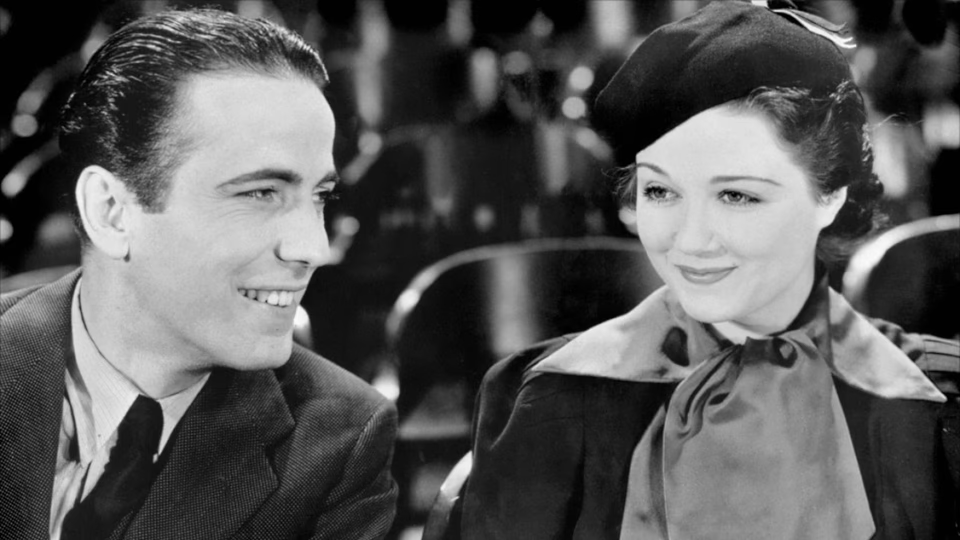Midnight

O. P. Heggie plays a jury foreman who poses a key question during a woman’s murder trial for a crime of passion. When she’s found guilty and sentenced to death, the papers hold him responsible. Fast-forward the execution night. A reporter played by Henry Hull bribes Heggie’s dim-witted son-in-law to bait Heggie into an emotional reaction. Spoilers follow.
Sidney Fox plays Heggie’s daughter. In the opening courtroom scenes, she had a meet-cute with Humphrey Bogart, who plays a low-level hood. By now, she’s obsessed with him, but he’s ready to skip town for Chicago, as he’s “Not ready to settle down in the suburbs and wear golf panties.”
Meanwhile, at Heggie’s house, his entire family blames him for the woman’s impending death. This, despite him being one of twelve, and only asking a pertinent question. And despite the guilty woman admitting she would do it over again. Poor guy. The defense attorney even shows up, pleading for Heggie to phone the governor and request a stay.
Then the twist: Fox murders Bogart in an improbable crime of passion. Hull encourages Heggie to phone the DA, who arrives, assesses the scene, weighs the implications for his political future, and convinces himself and everyone present that Fox didn’t kill Bogart.
I’m not sure what this film was trying to say, but I appreciated it avoiding the trope of Heggie flipping his principals when his own daughter’s involved. He remains resolute, hopeful the court will deem it manslaughter, and even seems disappointed by the DA’s hand-waving dismissal of the case.
But the editing kept yanking me out of the story. Instead of over-the-shoulder cuts, dialogue scenes cut between performers with head-on shots, each with a unique background. This conveys a sense of differing locations, placing the speakers in different rooms or houses. Compounding matters, during the single shot dialog scenes, several supporting performers wait a beat or two before speaking their lines, as though trying to remember what to say.
As for Bogart, he acquits himself well, but he’s miscast. The role calls for someone more physical and intimidating, like Paul Muni. Further, I suspect the character’s name, Gar Boni, intended to imply a racial prejudice that’s lost on the Dutch-English Bogart. Contrary to his top billing on reissue prints, Bogart’s original eighth billing better reflects his screen time in this forgettable effort.